
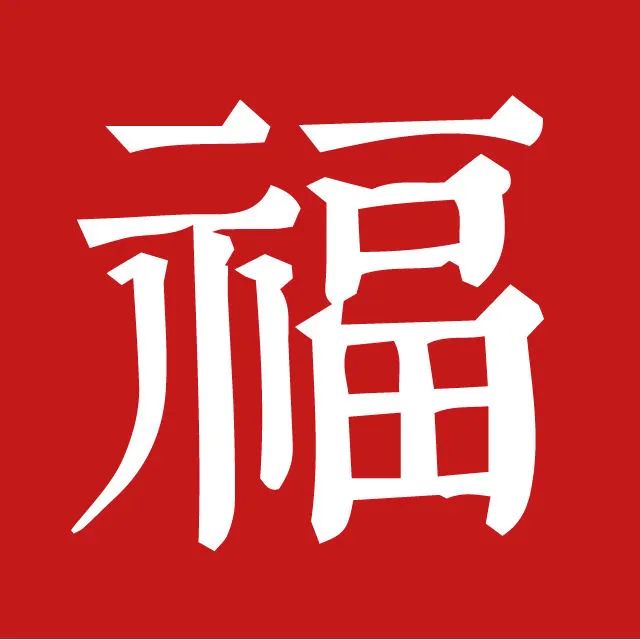
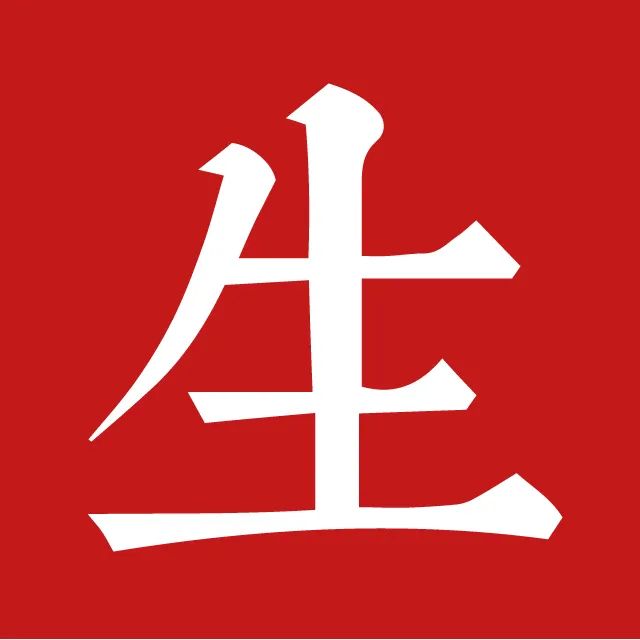
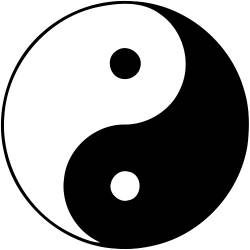
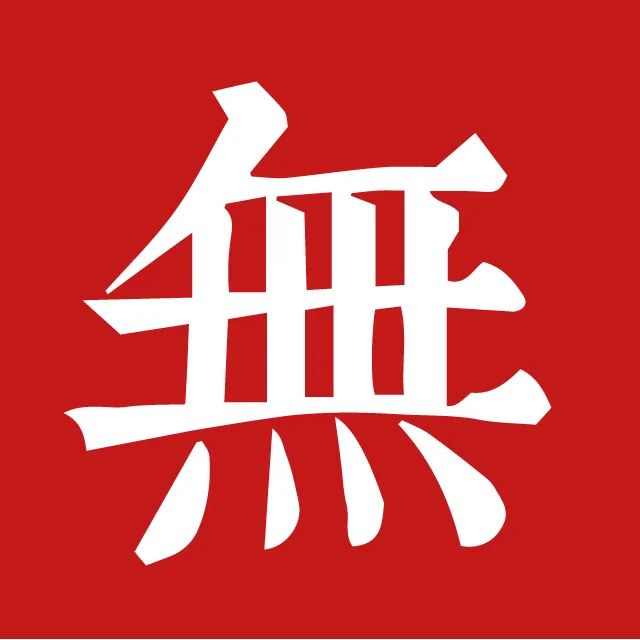
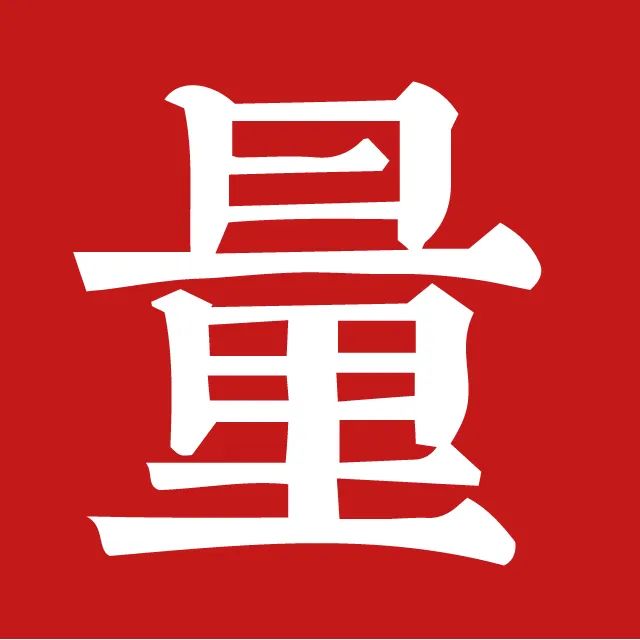
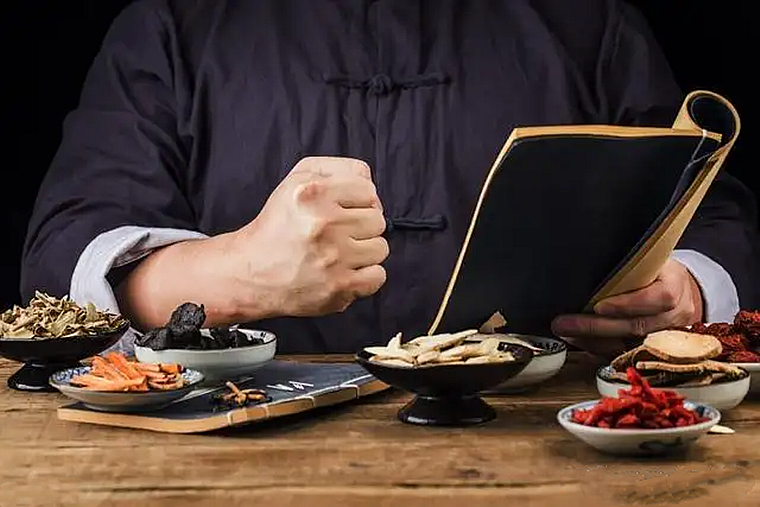
The kidneys store essence, which includes the congenital essence inherited from our parents and the acquired essence transformed by the spleen and stomach. This essence plays a crucial role in human growth, development, and reproduction.
The kidneys store essence, which manifests as two forces: one is called Kidney Yin (肾阴), and the other is called Kidney Yang (肾阳). Kidney Yang is also known as “True Yang (真阳)”, “Original Yang (元阳)”, or “Fire of the Gate of Life (命门之火)”.
Kidney Yang stimulates, excites, and propels our life activities. If we compare the human body to a vehicle, Kidney Yang is like the fuel tank that provides stable power for our daily activities.
Those with sufficient Kidney Yang have a vibrant life, filled with vitality, and maintain a positive, healthy, and upward lifestyle.
If Kidney Yang is deficient, the person will feel lethargic, suffer from various diseases, and the foundation of life will be unstable.
1. What discomforts arise from Kidney Yang deficiency?

1. People with Kidney Yang deficiency are sensitive to cold, have cold extremities, feel fatigued, yawn frequently, and just want to lie in a warm bed to sleep.
Kidney Yang deficiency fails to warm the blood vessels in the extremities, leading to cold hands and feet, a fear of cold outdoors, and wearing significantly thicker clothing than others.
2. Individuals with Kidney Yang deficiency often experience lower back pain.
This is particularly severe in autumn and winter; even when bundled up, they still feel a cold wind blowing on their lower back. The lower back is the residence of the kidneys; with insufficient Kidney Yang, the lower back and legs become weak and soft, and cold pathogens invade, causing severe pain.
3. Those with Kidney Yang deficiency may feel mentally fatigued, have reduced memory, and experience excessive sleepiness.
The kidneys govern the bones and produce marrow, with the brain being the sea of marrow. Insufficient Kidney Yang reduces the ability to produce marrow, leading to symptoms such as forgetfulness, mental fatigue, excessive sleepiness, and slowed reaction times.
4. Individuals with Kidney Yang deficiency may experience reduced libido, with men prone to impotence and premature ejaculation, while women may suffer from menstrual irregularities, dysmenorrhea, or infertility.
The kidneys govern reproduction; with insufficient Kidney Yang, reproductive functions are compromised, leading to impotence and premature ejaculation. If the uterus lacks the warmth of Kidney Yang, it can result in menstrual irregularities, dysmenorrhea, or even infertility.
5. Those with Kidney Yang deficiency are prone to edema and frequent nighttime urination.
The kidneys govern water metabolism and play a crucial role in regulating fluid balance. Weak Kidney Qi can lead to abnormal urination patterns. If water is not vaporized by Kidney Yang and is not expelled in a timely manner, it can accumulate in the body, causing edema.
6. Individuals with Kidney Yang deficiency may experience hearing loss, tinnitus, or even deafness.
The kidneys open to the ears; if Kidney Yang is deficient, it cannot warm and nourish the ear orifices, leading to hearing impairments.
7. Those with Kidney Yang deficiency may experience diarrhea, often waking up at 5 AM to have loose stools.
This is due to the inability of Kidney Yang to warm the Spleen Yang, leading to both Spleen and Kidney deficiency, resulting in abnormal digestion and frequent diarrhea.
2. What should be done for Kidney Yang deficiency?
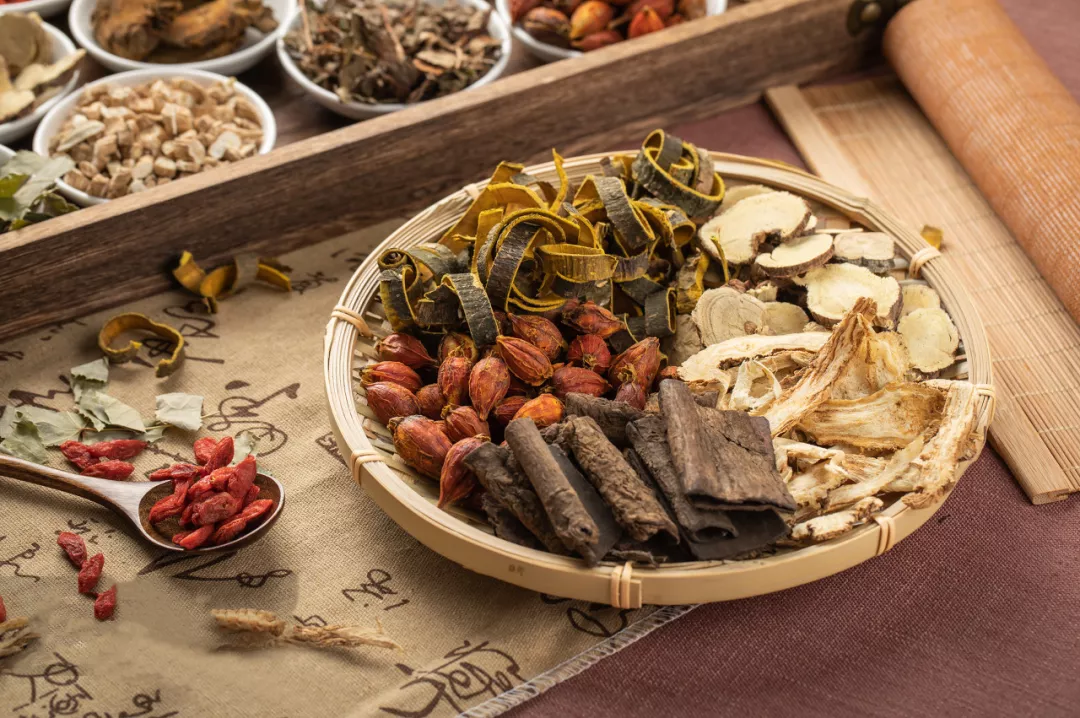
Today, I will introduce a great formula for nourishing Kidney Yang, discussing several herbs that achieve a strong and immediate effect in replenishing Kidney Yang.
This formula comes from the Ming Dynasty physician Zhang Jingyue’s “Complete Works of Jingyue” and is called “You Gui Wan (右归丸)”.
This formula is a modification of the Jin Gui Shen Qi Wan (金匮肾气丸) created by the great physician Zhang Jingyue. If Jin Gui Shen Qi Wan is relatively gentle in nourishing Kidney Yang, balancing both tonification and purging, You Gui Wan is a powerful formula that focuses solely on warming and tonifying Kidney Yang, filling essence and nourishing blood.
Since Kidney Yang is on the right and Kidney Yin is on the left, Zhang Jingyue named this formula You Gui Wan, which is a classic formula for warming and tonifying Kidney Yang.
The composition of You Gui Wan includes: 60g of Zhi Fu Zi (制附子, Prepared Aconite), 60g of Rou Gui (肉桂, Cinnamon), 120g of Lu Jiao Jiao (鹿角胶, Deer Antler Glue, roasted), 250g of Shu Di Huang (大怀熟地, Rehmannia Root), 120g of Shan Yao (山药, Chinese Yam, roasted), 90g of Shan Zhu Yu (山茱萸, Cornus Fruit, lightly roasted), 120g of Gou Qi Zi (枸杞, Goji Berries, lightly roasted), 120g of Tu Si Zi (菟丝子, Cuscuta Seed, prepared), 120g of Du Zhong (杜仲, Eucommia Bark, stir-fried with ginger juice), and 90g of Dang Gui (当归, Angelica Sinensis).
Usage: Grind into a fine powder, first steam the Shu Di until soft, then mix with honey to form pills the size of a marble. Take 2-3 pills with warm water.
Next, I will explain this formula from four aspects.
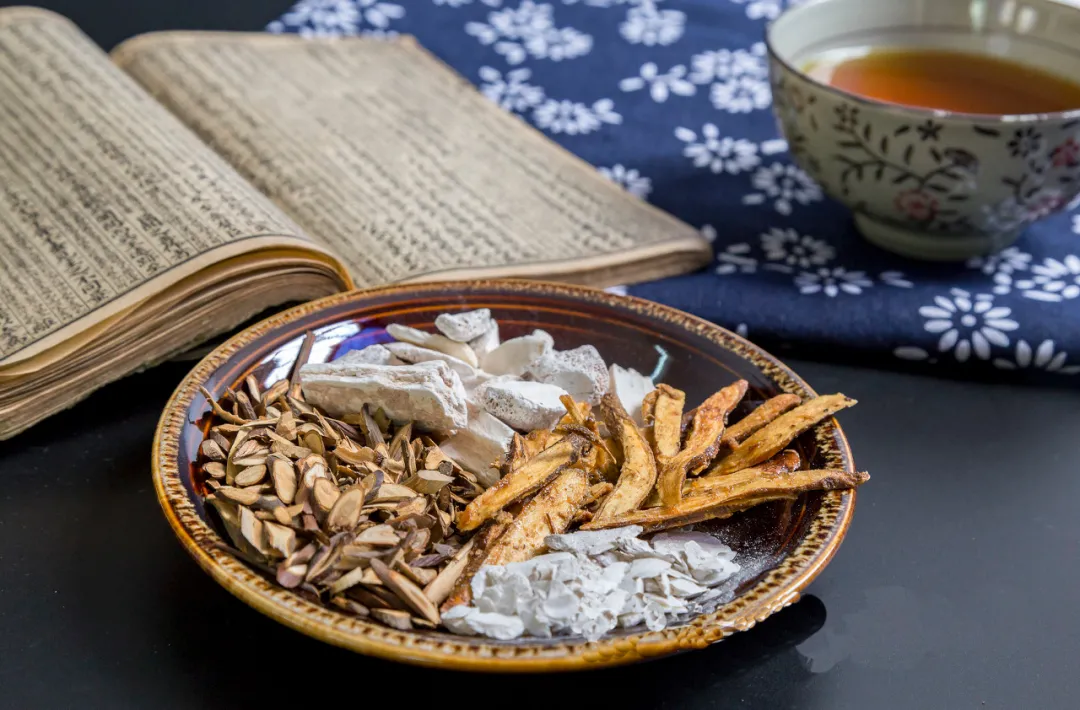
First group: Fu Zi, Rou Gui, Lu Jiao Jiao, three powerful warming herbs to replenish Kidney Yang.
Fu Zi is one of the most potent herbs in Traditional Chinese Medicine, known for its strong warming properties and ability to circulate through all twelve meridians.
The primary function of Fu Zi is to rapidly replenish Kidney Yang, earning it the title of “the first herb to revive Yang” and save lives in an instant.
Rou Gui has a spicy and sweet flavor; in TCM, spicy and sweet harmonize to create Yang, making Rou Gui a herb that can replenish Yang.
The warming energy of Rou Gui can effectively replenish the fire of the Gate of Life, enhancing Kidney Yang and benefiting Spleen Earth. The Spleen and Stomach are responsible for digesting food, akin to a cooking pot, while the fire of Kidney Yang is like the flame beneath the pot; when the fire is strong, the food in the pot can be cooked.
Moreover, Rou Gui’s warming properties can retain heat in the lower abdomen, effectively guiding fire back to the source.
Lu Jiao Jiao, made from deer antlers, has the effects of warming the liver and kidneys, benefiting essence and nourishing blood.
In TCM, deer are considered to possess strong Yang energy due to their active and lively nature, often seen running and jumping in the mountains and forests, embodying the vitality of nature.
Thus, deer antlers are regarded as the utmost Yang, and their regenerative ability, shedding and regrowing annually, signifies abundant Yang energy and vitality.
When deer sleep, they often turn their heads back to their tails, which connects to the end of the Governing Vessel (督脉), indicating that deer antlers can open the Governing Vessel, which is the sea of Yang meridians, thus having a powerful effect in replenishing Yang.
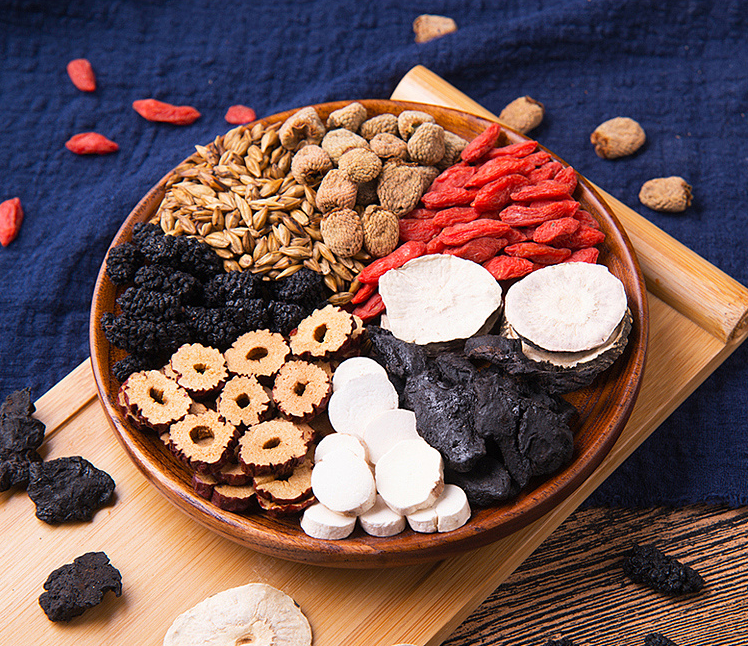
Second group: Shu Di, Shan Zhu Yu, Shan Yao, and Gou Qi Zi, nourishing Yin and benefiting the kidneys, nourishing the liver and tonifying the Spleen.
In Jin Gui Shen Qi Wan, Shu Di, Shan Zhu Yu, and Shan Yao are prominent, and an additional herb, Gou Qi Zi, is included to nourish both the liver and kidneys.
Shu Di is made from the root of Rehmannia and is known as the “essence of the earth”.
Shu Di has a well-developed root system that penetrates deep into the ground, allowing it to absorb the earth’s essence, resulting in a dark color and thick, rich juice that has a strong sealing effect, helping to store essence and blood.
Shan Yao is a rare health-promoting herb that nourishes Yin and benefits the Spleen, solidifying the kidneys and enriching essence, and is the highest quality among tonifying herbs due to its high protein content.
Zhang Xichun stated: “White enters the lungs, sweet returns to the Spleen, thick liquid benefits the kidneys, can moisten the blood vessels, solidify and transform Qi, calm coughs, and stop wheezing, strengthening will and nurturing the spirit.”
The well-known Liu Wei Di Huang Wan contains Shan Zhu Yu, which can nourish both Kidney Yin and Liver Yin.
Shan Zhu Yu has a sour taste that enters the liver, thus nourishing Liver Yin. Additionally, its red color corresponds to blood, allowing it to also nourish Liver Blood.
As Shan Zhu Yu is a fruit, it is closely related to the reproductive functions of plants, which are governed by the kidneys; therefore, fruits and seeds can nourish the kidneys.
Gou Qi Zi, similar in shape and texture to Shan Zhu Yu, is red, thick, and juicy, with a sweet taste that nourishes Yin, enriches blood, and benefits the kidneys, making it a valuable tonic.
Tu Si Zi is commonly found in rural areas, often growing in bean fields. It lacks roots and parasitizes on soybeans, wrapping around them and absorbing their nutrients, leading to the nickname “Bean King”.
Despite farmers’ disdain for Tu Si Zi, it possesses significant medicinal value, capable of nourishing the liver and kidneys, strengthening tendons and bones, calming the fetus, improving vision, and stopping diarrhea.
According to the “Bencao Jing Shu”: “Tu Si Zi is the king, nourished by the spring and early summer air, formed by the earth’s vital energy, and ripened by the autumn air.”
Thus, the “Bencao” states its flavor is mild and balanced. Tu Si Zi nourishes the kidneys, benefits the liver, and is a good medicine for warming the Spleen and assisting the stomach. It nourishes without being harsh, warms without being dry, making it a balanced herb for Yin and Yang.
Du Zhong is warm in nature and sweet in flavor. It has the effects of benefiting the liver and kidneys, strengthening tendons and bones, regulating the Chong and Ren vessels, and stabilizing the fetus. It can treat lower back pain or weakness caused by Kidney Yang deficiency, as well as issues related to liver Qi deficiency.
Since Du Zhong’s properties enter the Qi level and are drying and mobile, it is paired with Shu Di to avoid stagnation.
When used raw, Du Zhong is stronger for strengthening bones, while when stir-fried, it is more nourishing; this formula uses the stir-fried version.
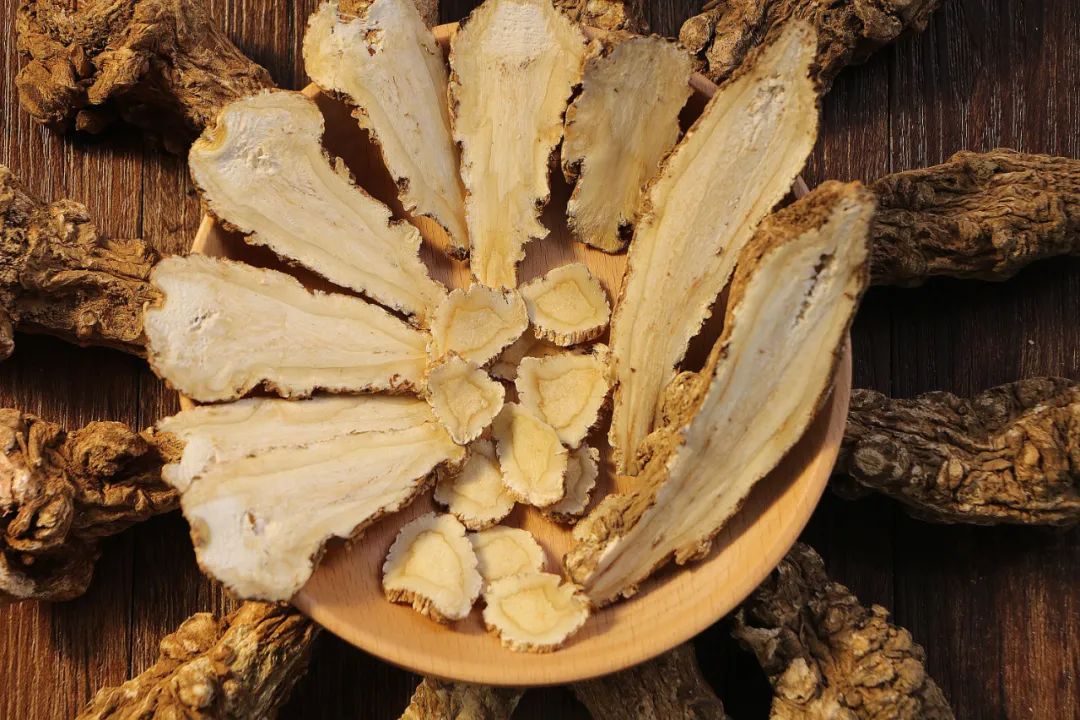
Final group: Dang Gui for blood nourishment.
Dang Gui is a well-known herb, often referred to as “the blood herb that cannot be omitted” in blood tonifying formulas, highlighting its powerful blood-nourishing properties.
Dang Gui is “thick and sweet”, capable of internally moistening the organs, indicating that its blood-nourishing ability is due to its moist texture. Upon close observation of Dang Gui slices, its moist texture is evident.
Moist substances closely resemble the nourishing nature of blood, allowing them to exert a moistening effect. Additionally, Dang Gui’s reddish-brown color corresponds to blood, making it effective in nourishing blood.
You Gui Wan is particularly suitable for symptoms caused by Kidney Yang deficiency and decline of the Gate of Life, such as lower back and knee coldness, mental fatigue, fear of cold, impotence, nocturnal emissions, loose stools, and frequent clear urination.
The “ecological” concept refers to the organic connection between living beings and their environment. Ecological ethics encompass moral views, basic norms, and ethical practices regarding the relationship between life and the ecological environment. Since the 20th century, with the widespread recognition of environmental crises, ecological awareness has emerged from specialized circles to the public stage, tasked with influencing human environmental practices and maintaining global ecological balance, becoming a prominent global topic. Daoism is not ecology, but its ecological ethical spirit is irreplaceable due to its unique characteristics, which is why it has not only survived but thrived, continuing to influence deeply. In ethical understanding, Daoism emphasizes the joy of life, tranquility, simplicity, and the enrichment and expansion of the spirit, focusing on the harmony between self and nature, human-centeredness, and profound yet simple content, which is infinitely interesting; in ethical practice, Daoism is dedicated to cultivating the essence, nurturing the light, and seeking a life that persists in the interaction of emotions, actions, nature, human relationships, and culture. Therefore, it demonstrates a conscious initiative to develop life’s vitality, a unity with natural objects, and a holistic system of ethical understanding. In Daoist terms, this is expressed as “the way of nature cannot be violated” and “following the way of nature”. This nature refers to the essence of things, the nature of life, and the nature of society. Understanding the essence of things, life, and society, and seeking the style, attitude, and demeanor that life and nature should have is the goal and spiritual pillar of Daoist ethics.
The ecological ethical spirit of Daoism is reflected in its exquisite and profound content and the appeal it holds for the world, embedded in the vitality that allows it to endure and develop over time. Specifically, the ecological ethical spirit of Daoism is manifested in six aspects:
1. The spirit of unity of all things. The highest object of worship in Daoism is the “Dao”. The purpose of Daoism is to achieve immortality and become an immortal. Achieving the Dao means integrating with the Great Dao through cultivation; thus, Daoism is the religion that emphasizes real life the most among many religions in China. It views all things in the world as one, believing that the existence of all things in nature is rational, and that humans are part of the universe, should enjoy life, and value life over death, allowing life to continuously transcend. Humans should also respect the existence and individuality of all things with an equal mindset. The early Daoist classic “Taiping Jing” states: “Heaven and Earth are harmonious and united, coexisting with all things”, suggesting that the ideal peaceful world is one where humans and all levels of natural things coexist harmoniously and prosper together. In the thoughts of Daoist thinker Ge Hong, the awareness of equality in the unity of all things is also very clear and rich; he believes that through cultivation, humans can achieve the ideal of “longevity” and “physical immortality”, which is the realm of unity with nature or the unity of all things. Daoism also has the thought of “the unity of life and Dao, valuing life”; Laozi pointed out that the Dao is the origin of the universe, and the Dao gives birth to one, one gives birth to two, two gives birth to three, and three gives birth to all things. Zhuangzi said: “Heaven and Earth are born with me, and all things are one with me.” This indicates that Daoism emphasizes understanding and grasping human intentions from the perspective of the universe. The ecological ethical spirit of the unity of all things teaches people to live in harmony with nature and create a society of harmonious coexistence and ecological civilization.
2. The spirit of giving birth without possession. Related to the spirit of unity of all things, Daoism believes that the highest realm and standard of life is the morality of producing all things without possessing them. Daoism holds that the highest realm of physical cultivation and spiritual perfection is the “Dao”. How is the Dao produced? Ge Hong proposed: “The Dao arises from one, which is precious and has no counterpart, each residing in its place, symbolizing Heaven, Earth, and Humanity, hence called the three unities.” Heaven obtains one to be clear, Earth obtains one to be peaceful, Humanity obtains one to be born, and the spirit obtains one to be spiritual. He believed this was an elaboration of Laozi’s wisdom of the Great Dao. Laozi pointed out: “Man follows the Earth, the Earth follows Heaven, Heaven follows the Dao, and the Dao follows nature”, and the essence of nature is: “The Dao is revered, virtue is precious, and nothing commands it but remains natural. Thus, the Dao gives birth to it, virtue nurtures it, grows it, nurtures it, and covers it, giving birth without possession, acting without claiming, and nurturing without dominating, this is called profound virtue.” Therefore, only “the Dao follows nature” aligns with moral thought. Noble morality lies in proliferating all things without claiming them, helping all things without boasting of one’s contributions, and guiding all things without dominating them. The Tang Dynasty Daoist scholar and physician Sun Simiao practiced this spirit, basing his medical theory on the unity of Heaven and humanity, and the idea of giving birth without possession, stating: “Heaven has four seasons and five elements, humanity has four limbs and five organs, Yang takes its form, Yin uses its essence, which is what Heaven and humanity share. A good doctor guides with herbs and stones, saves with needles and medicines, while a sage harmonizes with supreme virtue, assisting with human affairs, thus the body can recover from illness, and Heaven and Earth can eliminate disasters.” Sun Simiao himself was not only skilled in medicine but also possessed high moral character. This spirit of giving birth without possession in Daoism has considerable practicality and universal significance, proposing the concept of sustainable balance and development of worldly matters, revealing that humanity must follow nature and emulate natural laws, knowing what to do and what not to do to achieve results; if one forcibly takes, it will backfire, disrupt harmony, and prevent reaching a high realm.
3. The spirit of shaping all things. Before Daoism, the “Zhou Yi Chuan” stated: “The great person aligns their virtue with Heaven and Earth, their brightness with the sun and moon, and their order with the four seasons.” Here, it points out that the Dao of Heaven and the Dao of Earth are opposing yet coordinated, and this coordination is mediated by humans. Laozi elevated the status of humans: “Thus, the Dao is great, Heaven is great, Earth is great, and humanity is also great. Among the four greats, humanity occupies one.” Since “humanity is also great”, humans are not merely dependent on nature, subject to it, but should harness natural laws. Because humans rely on nature for survival, they must engage in material exchanges with nature. Daoism further proposes that humans should think thrice before acting, assess the situation, seek immortality and the Dao without forcing actions; if one acts against the Dao and “acts recklessly”, it will inevitably corrupt one’s nature and even harm humanity itself. Daoist practitioners believe that humans and all things in the universe are mutually responsive, and the basis of this response is that both humans and things possess spirituality, allowing for communication between humans and nature. The universe evolves continuously, and life is everlasting; as a member of the cosmic community, humans should aim to promote greater harmony and perfection in the universe, rather than engage in destructive behaviors that stifle the vitality of the universe. Therefore, Daoism not only provides a belief system for individuals to find their place in life or focus on the improvement and adherence to doctrines and regulations but also materializes beliefs or doctrines into various Daoist practices and techniques, forming an operational system that guides followers to practice. It can be said that Daoism is a religion that emphasizes the Dao, techniques, and actions, valuing the elevation of the Dao while actively promoting practices and cultivation techniques. A true Daoist comprehends the essence of Daoism not only by understanding its fundamental purpose or possessing sincere faith but also through training in Daoist techniques, diligently accumulating Daoist merit, and deepening and purifying their faith. This emphasizes the proactive agency of human activities and the adaptability of humans to nature. As intermediaries and coordinators of Heaven and Earth, humans must both follow nature and guide natural changes.
4. The spirit of unity in diversity. The spirit of unity in diversity in Daoism is connected to the spirit of “harmony and unity” in traditional ethics. The Daoist “Taiping Jing” states: “Harmony is the master of all things”, believing that all levels of natural and social phenomena contain the three basic elements of Yin, Yang, and harmony, which together constitute a single entity, hence the term three names in unison. “The original Qi has three names: the sun, the moon, and harmony. The body has three names: Heaven, Earth, and humanity. Heaven has three names: the sun, the moon, and stars, with the North Pole as the center. Earth has three names: mountains, rivers, and flat land. Humanity has three names: father, mother, and child. Governance has three names: ruler, minister, and people.” The three names in unison represent the ideal peaceful world. The Dao of Yin and Yang reflects the will of Heaven, so humans must follow the principles of Yin and Yang, maintaining harmony in relationships between people and between humanity and nature to eliminate disasters and achieve world peace. To achieve this goal, Daoism has developed the idea of harmony and unity in its belief system, alchemical practices, and ritual norms. The ecological wisdom of unity in diversity helps people recognize the significance of the diversity of existence in the world. Protecting the diversity of things can lead to sustainable development.
5. The spirit of cyclical regeneration. In terms of effectively utilizing nature, traditional Chinese people established the goals of “greatness” and “longevity”, believing that to achieve these goals, one must possess upright virtue, emulate Heaven and Earth, and use systems to restrain human insatiable desires, preventing harm to nature and humanity. The “Zhou Yi” points out two paths: one is “the second line is auspicious, as it is centered”. The other is “being centered and correct. Heaven and Earth are regulated, and the four seasons are established; regulation governs the world, preventing harm to wealth and people.” Daoism also developed similar thoughts, emphasizing that recognizing life and the conditions for its existence is the wisdom and virtue of sages, and the ideal living world for humans is a beautiful society where humanity and nature are one, where life can circulate continuously, flowing without interruption, and thriving endlessly. Early Daoism believed that those who achieved immortality in ancient times could transform and fly, standing apart from ordinary people, even transforming into different forms, like a sparrow transforming into a clam. Later Daoism absorbed more daily thoughts on human relationships, viewing life from the perspective of cyclical regeneration, advocating for “aging without decline, longevity, and freedom of movement” as the path to immortality. Daoist scholar Tan Qiao from the Five Dynasties viewed the universe, life, and society through the lens of “transformation”, proposing: “The spirit transforms into Qi, Qi transforms into form, form transforms into essence, essence transforms into perception, and perception transforms into yielding and yielding…” The prosperity of life and society exists in the process of change and unity. Daoism advocates for the restraint of desires in the utilization of resources, maintaining the vitality and developmental energy of all things, which aligns with traditional Chinese thoughts on seasonal practices, such as prohibiting logging before summer, banning the capture of young animals and birds, and not overfishing or burning forests. Interactions with biological resources should involve material exchanges, which should not be forceful possession but rather a natural adaptation and adjustment to nature.
6. The spirit of interconnectedness of all things. Daoist thought has always viewed nature as a super-large system full of life, where all things are organically connected. The universe operates as the intersection of time and space coordinates. From the beginning of Laozi and Zhuangzi, the mysteries of nature have been explored to reveal the inherent relationships within the natural world. Laozi said: “The Great Dao is vast and encompassing, it can be approached from both sides. All things are sustained by it without complaint, and accomplishments are achieved without claiming them. It nourishes all things without being the master, always without desire, which can be named as small. All things return to it without being the master, which can be named as great. Because it never seeks to be great, it can achieve greatness.” This means that the Great Dao, like a vast river, nourishes all things without selfishness or bias, caring for all life like a great mother, and all life depends on the Dao for sustenance. Treating the natural world kindly is fundamentally because “humans and Heaven are one”. Therefore, it is essential to protect the ecological environment. Zhuangzi said: “All things are seeds, differing in form and appearance, beginning and ending like a ring, with no distinction of order, this is called the balance of Heaven. The balance of Heaven is the balance of nature.” This means that all things come from specific species, but there are also connections and transformations between different material species, like a ring, with no clear beginning or end. This natural interconnectedness can be termed “the balance of Heaven”. Daoism believes that the Dao is the origin of the world, the source of all life, and the driving force behind the generation of all things. Tang Dynasty Daoist Wu Jun said: “The Dao that gives life is called the Dao, which is inherently nameless. The virtue that nurtures it is called virtue, which is also inherently nameless. Examining it, Heaven, Earth, humanity, spirits, immortals, and ghosts cannot exist without the Dao, and cannot be completed without virtue. Life does not know its beginning, and completion does not know its end. Exploring the hidden and the obscure, one cannot glimpse its origin, entering the end of existence and exiting the beginning of non-existence, cannot fathom its essence, is called nature. Nature is the constant of virtue and the framework of Heaven and Earth.” This is based on the inherent principles of the material world, reasoning the significance of moral essence for the material world, which contains ecological ethical wisdom of abundance and order. The Great Dao is the origin of the universe and the starting point for observing Heaven and Earth; from the perspective of the Great Dao, Heaven and Earth are one, all things are together, and there is no distinction between objects and self; although Heaven and Earth and all things have different forms, and human affairs have their own principles, fundamentally, they all follow their nature, fulfilling their essence, and finding peace in their own way. This is the unity in diversity and the non-difference in diversity; understanding the unity in diversity and the non-difference in diversity leads to understanding the Great Dao and integrating into the Great Dao.
In summary, the aforementioned aspects, when implemented in reality to maintain biological species and beautify the living environment, can contribute to ecological balance and sustainable development. This implies that Daoist ecological ethics must and can undergo modern transformation. The opportunity for transformation lies in the cultivation of a modern personality with noble spiritual realms. According to Daoist views, the lofty realm achieved through cultivation is not mysterious or unreachable; the highest immortals are manifestations of human creation and practice. Chinese religious history expert Mu Zhongjian summarized the characteristics of Daoist immortal personalities as follows: 1. Deep and vigorous vitality, thus able to live healthily and long; 2. High spiritual realm, transcending the “small self” to achieve the “great self”, thus the spirit can be immortal; 3. Extraordinary wisdom, possessing high insight and foresight, yet appearing simple and humble; 4. Beneficial without harm, acting without contention, with merits in the world; 5. Carefree and at ease, open-minded and composed, adept at resolving troubles, always maintaining a joyful heart. Achieving these aspects allows one to be called a living immortal. The so-called immortal realm, besides being happy and joyful, is also a beautiful and pleasant environment. Blue skies, white clouds, green mountains, clear waters, birds singing, and flowers blooming, with people living peacefully and happily together, is a beautiful life akin to a paradise on earth. We believe that as long as people strive to build and integrate the Daoist ethical spirit of unity of all things, giving birth without possession, shaping all things, unity in diversity, cyclical regeneration, and interconnectedness into the cultivation of modern personality, we can advance our material and cultural construction, and the paradise on earth can appear before us.
Zhang Jingyue summarized this formula: “Those with insufficient True Yang will surely feel fatigued and weak, or have palpitations, or feel weak all over, or see strange visions, or experience Yang decline and infertility. All should quickly enhance the source of fire to cultivate the original Yang of the right kidney, and the spirit and energy will strengthen naturally; this formula addresses that.”
Author: Sui Shi Yang


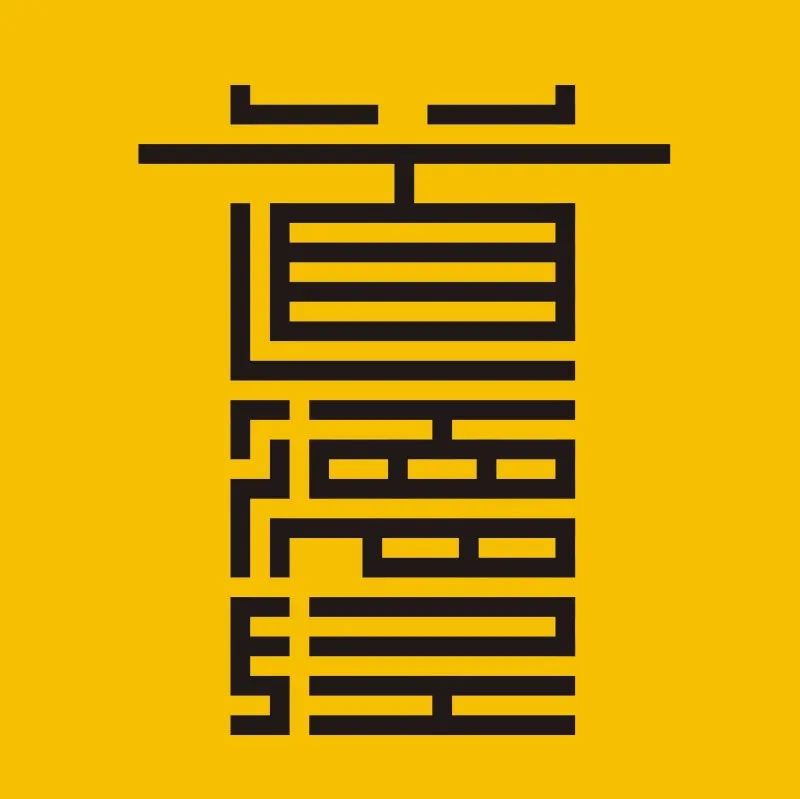 DaoismID: daoismcn福生無量天尊
DaoismID: daoismcn福生無量天尊
•How long has it been since you copied a scripture? Sincerely copying scriptures brings blessings!
•2022 Year of the Tiger, detailed analysis of the twelve zodiac fortunes! Come and see how your fortune is in the Year of the Tiger!
•Daoist secrets, instant kidney-strengthening methods! A simple trick to treat kidney deficiency!
•How should ordinary people practice Daoism to avoid “going astray”!
The five stages of refining essence into Qi, the introductory techniques of the Wuliu School of alchemy!
•”Dao De Jing”: Three types of character, the best fate; three types of virtue, the greatest fortune!
•Traditional Chinese Medicine: As people age, their feet weaken first; when the tree withers, the roots exhaust first. Moxibustion on the legs can nourish life!
•Fate studies: What are the wealth star and the印星 in the Eight Characters, and what do they mean!
•Ancient teachings: Cultivating a good mindset is equivalent to all the best medicines in the world!


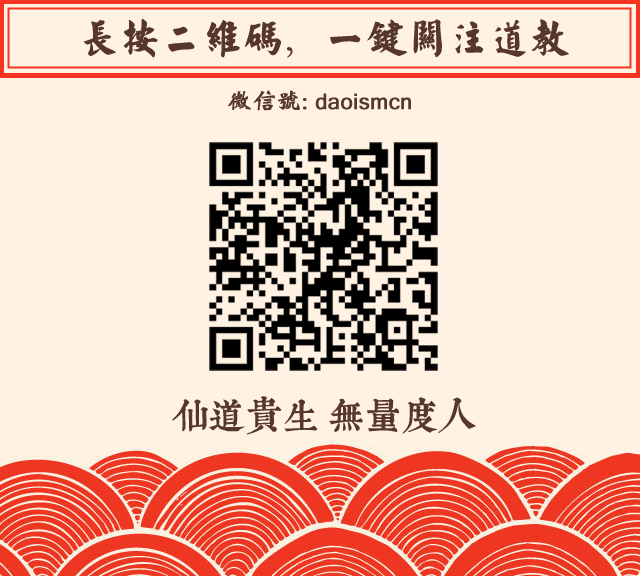
Daoism is the most compassionate reminder from the Celestial Master to humanity!
Reply with the following numbers to see more content
To view the following content, please follow the Daoism WeChat account by clicking the blue text “Daoism” below the title, or search for the WeChat ID: daoismcn
Reply “1” to view: 180 Questions on Daoism Basics
Reply “2” to view: Daoist Rules and Etiquette
Reply “3” to view: Daoist Precepts
Reply “4” to view: Daoist Incense Offering Etiquette and Taboo
Reply “5” to view: Daoist Scriptures and Classics
Reply “6” to view: Daoist Rituals and Ceremonies
Reply “7” to view: Daoist Robes and Ritual Implements
Reply “8” to view: Daoist Talismans and Techniques
Reply “9” to view: Daoist Yin-Yang Techniques
Reply “10” to view: Daoist Temples and Schools
Reply “11” to view: How to Join Daoism
Reply “12” to view: Notes on Joining a Daoist Master
Reply “13” to view: Common Knowledge of Daoist Scripture Recitation
Reply “14” to view: Notes on Daoist Offerings
Reply “15” to view: Daoist Temple Etiquette and Taboos
Reply “16” to view: How to Practice Daoism at Home

